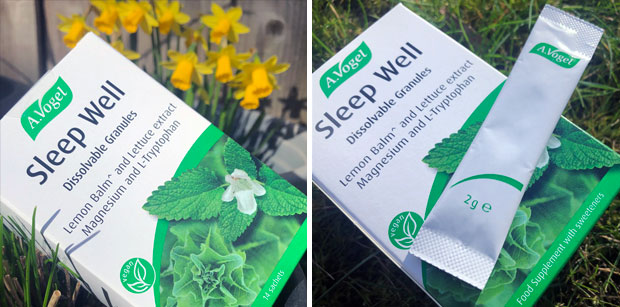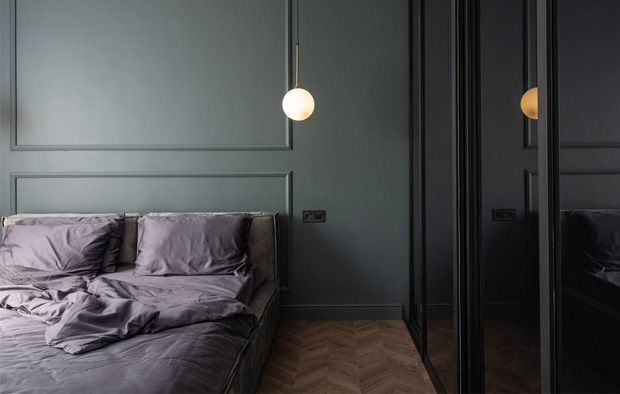Menopause Sleep Tips – Ways to Help You Get a Good Night’s Sleep

Menopause Sleep Tips – Ways to Help You Get a Good Night’s Sleep
Menopause can affect your life and your well-being in so many ways. One common problem for women going through menopause is that it affects their sleep quality. The two female sex hormones, oestrogen and progesterone, both decline during menopause and these hormones are both linked to sleep. When there’s a decline in these hormones there is an impact on serotonin levels and the body’s internal clock, the circadian rhythm, is affected. The reduction in oestrogen also impacts the ability to regulate body temperature. People with lower levels of oestrogen tend to experience higher body temperatures, which reduces the quality of sleep too. In this article, we’ll explore some menopause sleep tips so that you can enjoy a good night’s sleep every night when you’re going through menopause too. Luckily, there are many things that you can do to help achieve this. Read on to learn more about this.
Menopause Sleep Tips
Stick to the same hours.
This is the same for people at all stages of life. Going to sleep and getting up at the same time each day is a great way to help your body get used to when it’s supposed to be asleep. Stick to the same sleep schedule every day of the week, if possible, even on the weekends.

Have a relaxing bedtime routine.
Create a calm and relaxing bedtime routine for yourself that you can enjoy every evening and that will help prepare your body and mind for sleep. Don’t rush this – set aside at least half an hour or so for this so that you truly have time to wind down. Have a bath, a cup of caffeine-free tea, read a book, do some stretches, listen to soothing music – whatever works for you.
Avoid certain things close to bedtime.
Avoid all screens close to bedtime as the blue light from screens can interfere with your sleep-cycle and the release of melatonin, which is the sleep hormone.
Also avoid eating large meals close to your bedtime as your digestion slows down at this time of the day when your body wants to rest. Plan your meals so that you give your body plenty of time to start digesting your food before you go to bed.
It’s also best to avoid alcohol close to bedtime. Though it can have a sedative effect on many people, it actually disrupts the quality and quantity of sleep and leaves you feeling more tired the next day.
Unsurprisingly, caffeine impacts your sleep too. Caffeine hangs around in your body for many hours after consumption so it’s best to avoid caffeinated beverages completely late in the day. Set a cut-off time for yourself, for example 3pm, and only have caffeine-free options from then onwards until the next morning.

Try natural supplements that aid sleep.
There are natural remedies that can help you sleep better too. A.Vogel’s Sleep Well Dissolvable Granules is a new innovative product. It’s a natural plant-based remedy developed to help people regain their natural sleep rhythm.
This supplement provides extracts of Lettuce, Lemon Balm, L-Tryptophan and Magnesium. These are all ingredients that are known to support better sleep. The granules are flavoured with bitter orange. They are easy to take by pouring the contents of a small sachet under the tongue where they’ll dissolve. No need for water but you can also swallow the granules with water if you prefer.
The vegan formula of sleep-friendly ingredients is fast-acting. The ideal time to take this supplement is around 30 minutes before your bedtime. This makes them perfect for incorporating into your bedtime routine.
Sleep Well Dissolvable Granules cost £15.99 for 14 sachets. Each box is a two-week supply. Sleep Well Dissolvable Granules are available from health shops nationwide and www.avogel.co.uk.
Exercise at the right time.
Moving your body daily and incorporating exercise into your schedule is a great idea for health and sleep. It’s a great way to reduce many menopausal symptoms too – hot flushes, joint discomfort, weight gain, and sleep problems. Avoid exercising too close to bedtime and try to stick to regular times each day if you can. Perhaps a longer walk in the morning and some scheduled workouts, including strength training, each week on your lunch break or straight after work?

Optimise your bedroom for sleep.
There are lots of things that you can do to optimise your bedroom for better sleep too. Ensure your bedroom is a space of tranquillity and calm. You can achieve this by keeping it tidy and clean. Also keep it free from screens and anything to do with work or other things that can cause stress. The bedroom should be a place for relaxation and sleep.
Invest in a comfortable mattress and other bed accessories. This includes good pillows, good-quality duvet, and nice bedding that you love and enjoy using. Keep the bedroom dark and quiet at bedtime. Most importantly, ensure the room is at a comfortable temperature for when you go to bed. Slightly cool is the best for a good night’s sleep. If the room feels warm just open the windows for a bit before you hop into bed.
Also Read: How to Balance Your Hormones Naturally During Perimenopause and Menopause
Collaboration.




